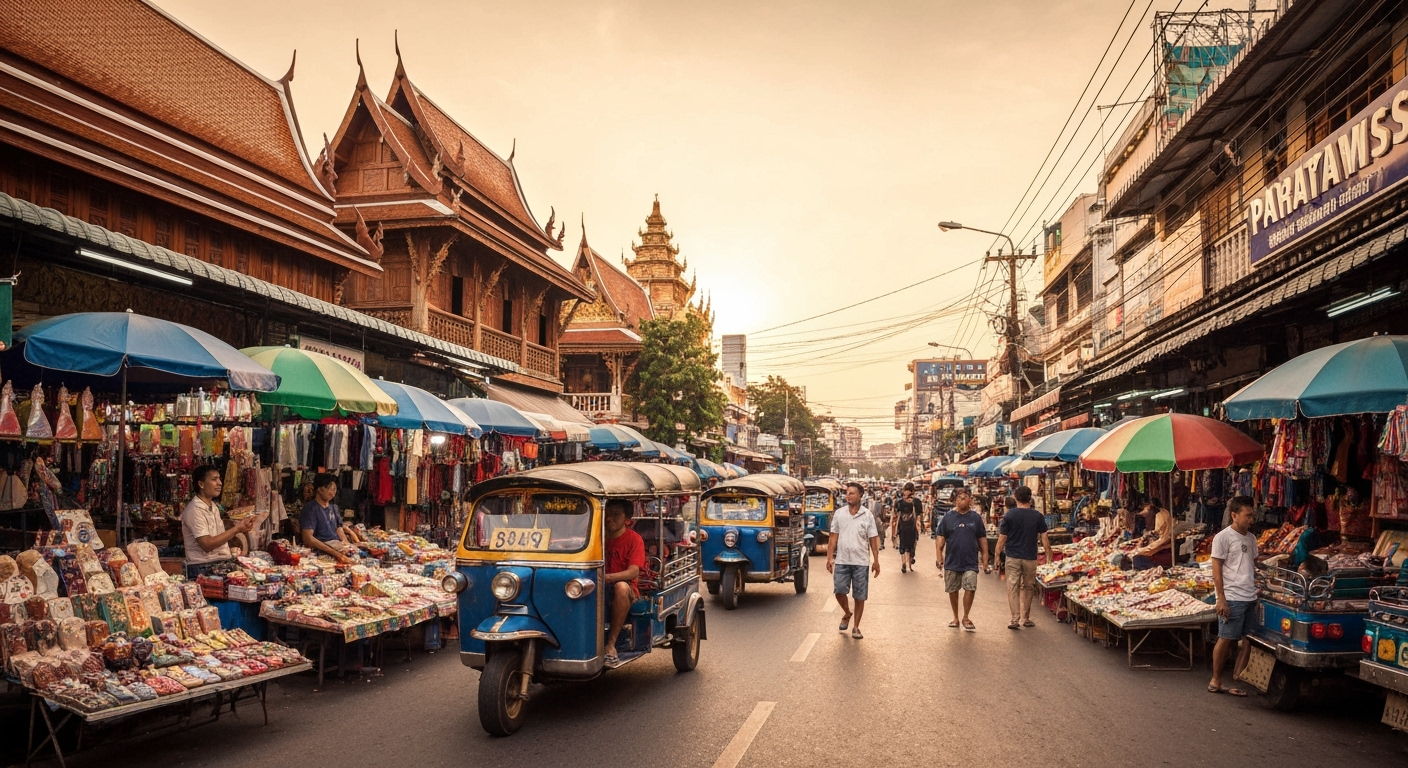
Navigating a new currency can be daunting, especially when you’re eager to explore a vibrant city like Pattaya. This guide is your key to understanding the Thai Baht, ensuring a smooth and enjoyable trip.
Understanding the Thai Baht
The Thai Baht (THB) is the official currency of Thailand. It comes in both coins and banknotes, each with its own distinct design and value. Familiarizing yourself with these denominations will help you avoid confusion and potential scams.
Banknotes:
- 20 Baht (Green): Features King Bhumibol Adulyadej (Rama IX).
- 50 Baht (Blue): Also features King Bhumibol Adulyadej.
- 100 Baht (Red): Depicts King Chulalongkorn (Rama V).
- 500 Baht (Purple): Showcases King Mongkut (Rama IV).
- 1000 Baht (Brown): Features King Bhumibol Adulyadej and King Nangklao (Rama III).
Coins:
Coins are less frequently used by tourists but are essential for small purchases, especially in markets or for public transportation. You’ll find coins in denominations of 1, 2, 5, and 10 Baht, as well as smaller denominations called ‘satang’ (25 and 50 satang), though these are rarely used.
Exchanging Currency: Where and How
Getting the best exchange rate is crucial. Avoid exchanging currency at airports or hotels, as they typically offer less favorable rates. Here’s a breakdown of better options:
- Banks: Banks in Pattaya offer reliable exchange services. Check the rates at several banks to find the best deal. Be prepared to show your passport.
- Currency Exchange Booths: These are widely available throughout Pattaya, especially in tourist areas. Superrich Thailand (orange booths) and Twelve Victory are known for competitive rates. Compare rates before committing.
- ATMs: ATMs are convenient for withdrawing cash, but be mindful of fees charged by both your bank and the Thai bank. Opt for ‘withdraw without conversion’ to let your bank handle the exchange rate, usually resulting in a better deal. Always be aware of your surroundings when using ATMs.
Tipping Etiquette in Pattaya
Tipping isn’t as customary in Thailand as it is in some Western countries, but it’s appreciated for good service. Here’s a guide:
- Restaurants: A small tip (20-50 Baht) or rounding up the bill is common for good service, especially if a service charge isn’t already included.
- Massage Therapists: Tipping is customary. 50-100 Baht is a reasonable amount, depending on the quality of the service.
- Taxi Drivers: Tipping isn’t expected, but rounding up the fare is a kind gesture.
- Hotel Staff: Tipping bellhops or housekeeping staff (20-50 Baht) is appreciated for their service.
Budgeting Tips for Pattaya
Effective budgeting is essential for a stress-free trip. Pattaya can be surprisingly affordable if you plan wisely.
- Accommodation: Prices range from budget-friendly hostels to luxurious resorts. Book in advance, especially during peak season.
- Food: Street food is a delicious and inexpensive way to eat. Local restaurants also offer affordable meals. Avoid tourist traps with inflated prices.
- Transportation: Utilize public transportation like baht buses (songthaews) for cost-effective travel around the city. Agree on a price before getting in.
- Activities: Many attractions have entrance fees. Research and prioritize activities that fit your budget.
Avoiding Scams and Overcharging
Unfortunately, scams can occur in tourist destinations. Be aware of these common pitfalls:
- Taxi Scams: Insist on using the meter. If a driver refuses, negotiate a price beforehand or find another taxi.
- Gem Scams: Avoid buying gems from unofficial sources or individuals who approach you on the street. Stick to reputable stores.
- Overcharging: Always check prices before agreeing to a service or buying something. Question any unusually high prices.
Paying with Cards
While credit cards are accepted in many hotels, restaurants, and larger establishments, it’s always a good idea to carry cash, especially when visiting local markets or smaller venues. Be aware that some places may charge a small fee for credit card transactions. Inform your bank you are traveling to Thailand to avoid any holds on your card.
Conclusion
Understanding the Thai Baht and practicing smart money management empowers you to enjoy Pattaya without financial stress. By following these tips, you can confidently navigate the currency scene, avoid potential pitfalls, and make the most of your trip to this captivating city. Remember to compare exchange rates, budget wisely, and be aware of your surroundings, and you’ll be well on your way to an unforgettable experience in Pattaya. Safe travels!